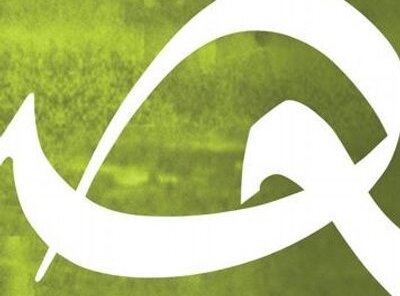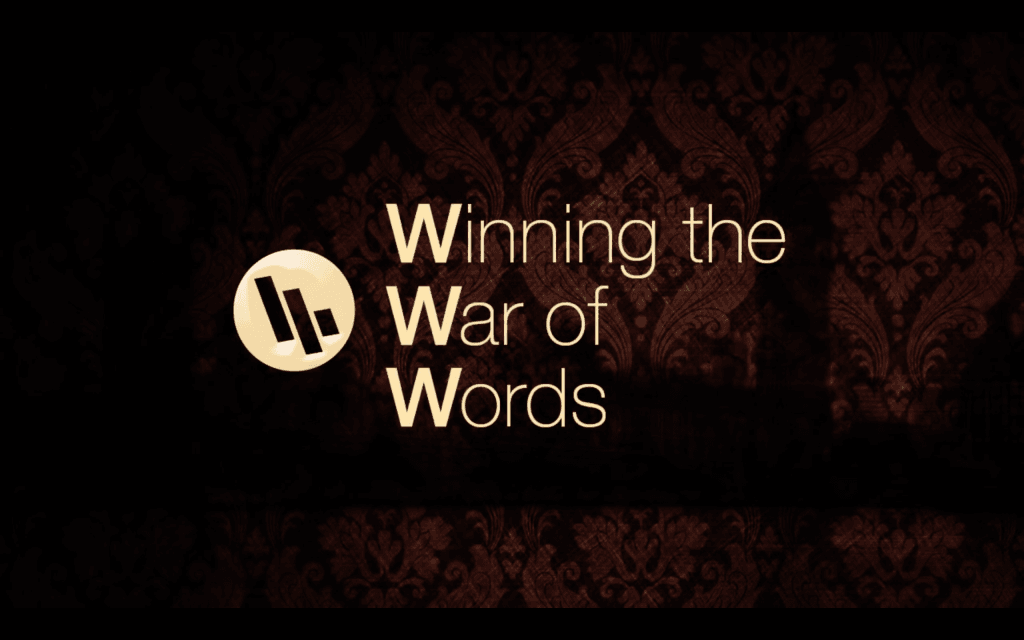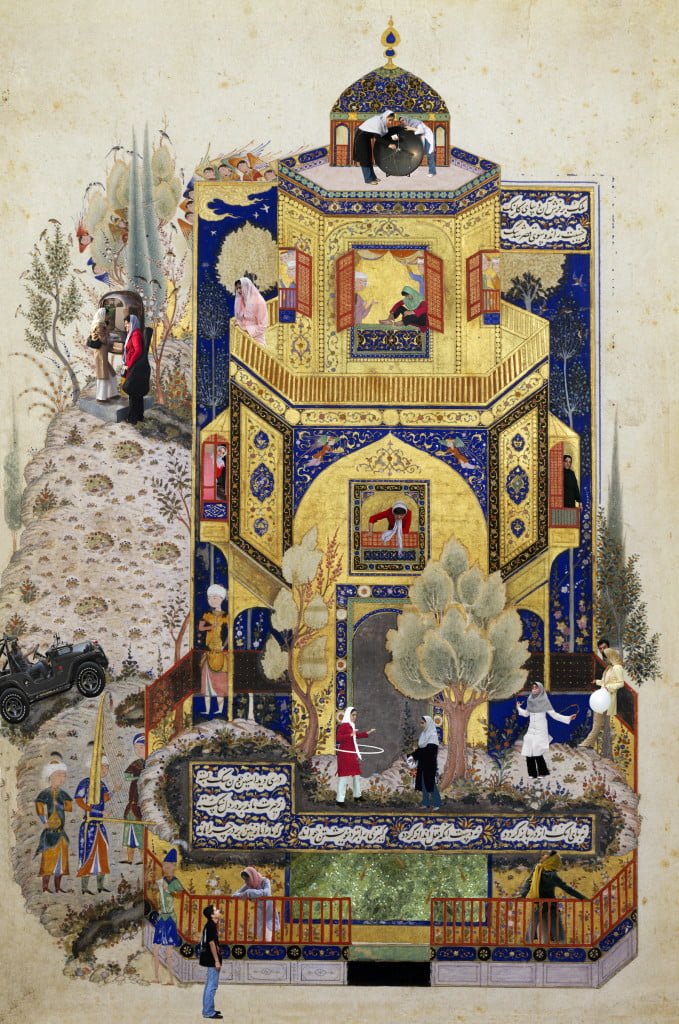#Solidarity: Quilliam’s Artistic Director Nazish Khan on the foundation’s upcoming season of art, theatre, and speech

As the Quilliam Foundation’s Season of #Solidarity gets under way, Nazish Khan, the season’s Artistic Director, tells us what’s in store, what motivated the project, and what it aims to achieve.
The premise is simple, and its about the only thing that is, given that radicalisation, Islamist extremism, and the socio-political kaleidoscope they bring with them, are not. They throw up a myriad of issues: integration, faith, fears, multi-faceted identities, schoolteachers worn out with ‘Yes, you can be British and Muslim, a bit Muslim, a bit dual-heritage (you can’t say mixed-raced, even a bit), queer, questioning, Catholic, and just downright a bit irritating. That’s sort of the point’.
Then there’s that term ‘British values’, well meaning but a clumsy, last-minute gathering of our national unity. What does it mean? We, the Brits, don’t do labels well. We pride in the enigmatic nature of our unwritten constitution, citing only the Magna Carta for exception, but for the most part it’s a delicate balance and application of statutes, precedents, and that unlabelled, unquantifiable stuff of yore which delightfully baffles the rest of the commonwealth. That unquantifiable stuff made up of conventions, equitable maxims, and Latin doctrines and shared values. Does it need a label? It’s always been there. The determined little ships of Dunkirk. The Blitz spirit, a feeling of defiant stoicism and unity in the face of the enemy. A spirit. A feeling. Inspiring a generation to Keep Calm and eat chocolate.
In practice a school sends me their citizenship day presentation for comment, complete with pictures of a Union Jack teapot, an unappetising tub of marmite (hate it), and a grainy picture of Mo Farah. Polite offerings of democracy, tolerance, and the rule of law get thrown in for good measure. The rule of law means no one is above the law. Does that mean the Queen can go to prison if she kills someone? That constitutional paradox leaving law lecturers groaning everywhere. She owns the prisons. And swans. But in theory, she can go to prison and eat the swans. That good old stuff of yore.
It is a complicated and charged landscape and everyone is trying to make sense of it in their own fashion. So why Quilliam’s Season of #Solidarity?
The premise is simple because art is not doing anything new here. It is doing what it does best: encapsulating and recording the continuing battle between chaos and order. An expression of tension that arises from our natural urge to reconcile opposites, it seeks form, even when portraying anarchy. The Apollonian-Dionysian dichotomy, a fancy way of referring to Zeus’s lads: the mad, unhinged one and the logical, reasoned one, both wrestling for a resting space that satisfies both senses. Without either art would not – could not – exist.
We stare at the faces of the three Bethnal Green schoolgirls and ask ‘Why? But why? You got A*s at GCSE!’ Parents poring over the Sunday Times Parent Power are thrown off course. And then there’s that photograph of Mohammed Enwazi, or ‘Jihadi John’, in his red school jumper, shy grin and pre orthodontist intervention, not revealing the face of a barbaric monster but of someone we knew – yes, there is a ‘we’. A kid we all went to school with, probably walked home with. Did we miss a trick? We. Us. All of civil society? What took him and those girls from their home to a life of violence in Syria?
There is no single, uniform journey into radicalisation, and to presume so would be to belittle every human condition and experience.
Understanding any journey or any experience is an organic codification of the human mechanism for understanding. For understanding ‘the other’. It’s what we do. It’s what we should do. Aristotle’s premise is that everyone has a small germ of ambition, nihilism, or a tragic flaw. A malignant germ that in most remains benign. Proust once remarked, ‘One cannot read a novel without ascribing to the heroine the traits of the one we love’. We relate to the tragic hero, willing to lay down his life for love or honour, the old miser who confronts his selfishness and learns the joys of giving; why not a young person with everyday social pressures, unfulfilling online interactions and untapped motivation, seeking greater purpose away from it all?
Maajid Nawaz, the founder of Quilliam, in his book Radical: My Journey from Islamist Extremism to a Democratic Awakening, highlights the importance (before the so-called Islamic State came into being) of using all aspects of the arts as a powerful tool for creative activism. It encourages dialogue, debate, and discussion but also an understanding through the heart and mind. We cannot simply legislate our way out of Islamist extremism that is based on an ideology.
The Season of #Solidarity is firing the arts on all its cylinders and is engaging in creative activism by examining and debunking the myths extremist ideologues would have us believe.
Winning the War of Words is a spoken word evening and will be exploring these themes through this urban style of expression. It is immediate and current in its style and reflects the urgent nature of the situation. Young people give us an insight into their worlds.

EAT Identity is based on the concept of Theodore Zeldin’s Feast of Strangers and is an immersive theatre piece, using food, drama, and dialogue to get strangers to talk to each other about multiculturalism, radicalisation, our stereotypes, Islamaphobia, and the wars. Yes the wars. We ignore John Cleese goose-stepping at the Quilliam offices bellowing not to mention the wars and foreign policy. This piece of work is immersive and audience driven, so an agenda cannot be secured. No matter how hard Cleese stomps and flaps his arms.
Generation J is a play that is a culmination of humanising our research, findings from our outreach work, the Islamic reform team, studies on the Islamic State, and verbatim of young people that have been at serious risk of becoming radicalised. These conversations were drawn from safe places through artistic workshops without judgment. Their identities will remain anonymous, but their experiences need to be shared, for them to feel both empowered and valued and for everyone else to learn more about the other, even if it is a bit.

Soody Sharifi A Courtly Love
Our debut artistic event is called The Unbreakable Rope, taking its name from Abu Nawas’s poem, ‘Love in Bloom’. It is an exhibition partnered by the Free Word Centre exploring sexuality and Islam. The trolls tingle in salacious anticipation. Kindly note the exhibition is free and attendance is not mandatory. There is no depiction of deity or of the prophets. So why have we embarked on this exhibition?
Early Muslim scholars openly discussed sex and both the Hadith and the Qur’an make references to sex and acceptance of sexual diversity. In Surat al-Nur (Qur’an 24:31-24:33) it specifically mentions ‘men who are not in need of women’. These men are not attracted to women and therefore by definition they were not heterosexual men. They are not judged or condemned anywhere in the Qur’an and these people were not stoned to death or thrown off buildings. This exhibition is reigniting that spirit of openness in a climate of fear. Looking at Islam through a wider lens and not a culturally narrow one.
There was a spirit of discussion, tolerance, and acceptance and a common goal for something greater, forming and weaving through civilisations. That shape-shifting, enigmatic, unquantifiable stuff of yore that seems to have become lost in the thick angry fog. Call it British values, liberal values, or the lost spirit of early Islam. You cannot experience everything and be everyone in a lifetime, but through the arts you can harness that spirit, get a flicker of illumination, a snapshot into the ‘other’, a pause to view through a different hue, fuelling our understanding, allaying fears, and being able to voice a curiosity without fear of offence. That space somewhere between Zeus’s wrestling lads and John Cleese’s stomping, between chaos and order, is where we all exist.
As the great Rumi said, ‘Out beyond ideas of wrongdoing and rightdoing there is a field. I’ll meet you there.’
Nazish Khan is Arts Director of the Quilliam Foundation‘s Season of #Solidarity, which kicks off this week with The Unbreakable Rope exhibition at London’s Free Word Centre. Find out more at unbreakablerope.com.
Filed under: Politics

Comments